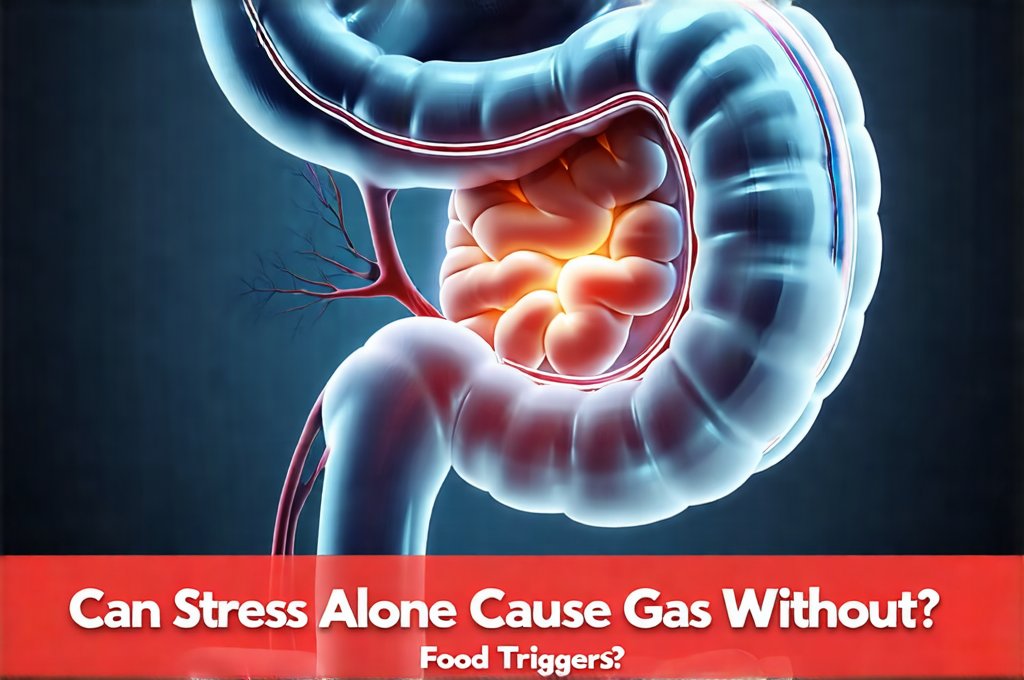Gas is a completely normal part of digestion; everyone experiences it to some degree. It’s often associated with what we eat – certain foods are well-known gas producers, leading many to assume dietary factors are always the culprit when bloating and flatulence arise. However, the relationship between stress and gastrointestinal function is surprisingly strong, prompting a growing question: can psychological stress alone cause excessive gas, even without obvious food triggers? This article delves into the complex interplay between mind and gut, exploring how stress impacts digestion and whether it’s possible for emotional distress to manifest as uncomfortable bloating and flatulence. Understanding this connection can empower individuals to better manage their digestive health and seek appropriate support when needed.
The gastrointestinal system is incredibly sensitive and deeply interconnected with the nervous system – often referred to as the “gut-brain axis.” This bidirectional communication highway means that our mental state significantly influences our digestive processes, and conversely, gut health can impact mood and cognition. When we experience stress, our bodies initiate a cascade of physiological changes designed for “fight or flight,” diverting resources away from non-essential functions like digestion. Chronic stress, in particular, disrupts the delicate balance within the gut, potentially leading to altered motility, increased visceral sensitivity (heightened awareness of gut sensations), and even changes in the composition of the gut microbiome. This disruption can create a fertile ground for digestive discomfort, including gas production, independent of dietary choices. Perhaps can emotional stress be a root cause of these issues?
The Stress Response & Digestive Disruption
The physiological response to stress is immediate and profound. When faced with a perceived threat (whether physical or emotional), the sympathetic nervous system kicks into gear. This results in several key changes that directly impact digestion: – Reduced digestive enzyme secretion – hindering proper food breakdown. – Decreased gastrointestinal motility – slowing down the movement of food through the digestive tract. – Constriction of blood flow to the gut – diverting resources towards muscles and vital organs. These effects, while helpful in an acute survival situation, become problematic when sustained over long periods. Chronic stress essentially puts digestion on hold or significantly impairs its efficiency. Food isn’t properly broken down, leading to fermentation by gut bacteria, which inevitably produces gas as a byproduct. Even foods that are typically well-tolerated can cause issues if the digestive system is compromised by ongoing stress. This may also relate to can long term stress worsen food sensitivities?
Furthermore, stress doesn’t just affect the physical processes of digestion; it also influences how we perceive those processes. Individuals under chronic stress often experience heightened visceral sensitivity – meaning they become more attuned to normal gut sensations and are more likely to interpret them as painful or uncomfortable. This can lead to a vicious cycle where increased awareness of gas exacerbates anxiety, which then further amplifies digestive symptoms. It’s not necessarily that there’s more gas being produced, but rather that it’s perceived with greater intensity.
How Stress Impacts Gut Motility
Gut motility refers to the coordinated contractions of muscles in the digestive tract that move food along. Stress profoundly disrupts this delicate process. As mentioned earlier, during stress, the sympathetic nervous system dominates, slowing down peristalsis – the wave-like muscle contractions responsible for moving food through the intestines. This slower movement allows more time for fermentation by gut bacteria, increasing gas production and potentially leading to bloating. Conversely, in some individuals, stress can accelerate motility, causing diarrhea or a sense of urgency. Both extremes disrupt normal digestion and contribute to discomfort.
The impact on motility isn’t always predictable; it depends on the individual and the specific stressors involved. Some people may experience constipation while others get diarrhea, both driven by the same underlying stress response. Managing stress is therefore crucial for restoring healthy gut motility. Techniques like mindfulness meditation, deep breathing exercises, and regular physical activity can help regulate the nervous system and promote a more balanced digestive process. In some cases, can gut imbalance cause food intolerances might also be at play.
The Role of Cortisol & Gut Health
Cortisol, often referred to as the “stress hormone,” plays a significant role in mediating the relationship between stress and digestion. While cortisol is essential for survival, chronically elevated levels can have detrimental effects on gut health. High cortisol levels can: – Disrupt the balance of gut bacteria (dysbiosis) – favoring harmful bacteria over beneficial ones. – Increase intestinal permeability (“leaky gut”) – allowing undigested food particles and toxins to enter the bloodstream. – Impair immune function in the gut – making it more susceptible to inflammation. These changes create a cascade of issues that exacerbate digestive symptoms, including gas production.
A healthy gut microbiome is vital for proper digestion and overall well-being. Stress-induced dysbiosis can disrupt this delicate ecosystem, leading to increased fermentation and gas production. Restoring gut health through dietary interventions (like incorporating probiotic-rich foods) and stress management techniques can help rebalance the microbiome and improve digestive function. Consider exploring can gut bacteria cause food cravings to better understand this connection.
Visceral Hypersensitivity & Amplified Perception
Visceral hypersensitivity is a key component in understanding why stress can lead to perceived bloating and excessive gas, even when objective measurements don’t support it. It refers to an increased sensitivity to normal gut sensations. Individuals with visceral hypersensitivity experience pain or discomfort from amounts of gas that wouldn’t bother someone without this condition. Stress significantly exacerbates visceral hypersensitivity. When stressed, the brain becomes more focused on bodily sensations, including those originating in the gut. This heightened awareness can amplify even minor digestive processes, leading to a sense of bloating and discomfort.
The cycle of stress-induced visceral hypersensitivity is often self-perpetuating: anxiety about gas leads to increased focus on gut sensations, which then intensifies the perceived discomfort, further fueling anxiety. Breaking this cycle requires addressing both the physical symptoms and the psychological component through techniques like cognitive behavioral therapy (CBT) and mindfulness practices. It’s also worth considering if can food sensitivities cause joint pain contributes to overall discomfort.
It’s important to note that while stress can certainly contribute to gas and bloating, it’s rarely the sole cause. Underlying digestive conditions, such as irritable bowel syndrome (IBS) or small intestinal bacterial overgrowth (SIBO), can make individuals more vulnerable to these symptoms when stressed. Therefore, if excessive gas is persistent or significantly impacting your quality of life, it’s essential to consult with a healthcare professional to rule out any underlying medical issues and develop an appropriate management plan. Additionally, can food additives cause digestive reactions should be considered. Seeking help isn’t a sign of weakness; it’s a proactive step towards improving your overall health and well-being.
Finally, if you find yourself reacting to foods repeatedly, can eating the same food every day cause reactions is another avenue for exploration.


















